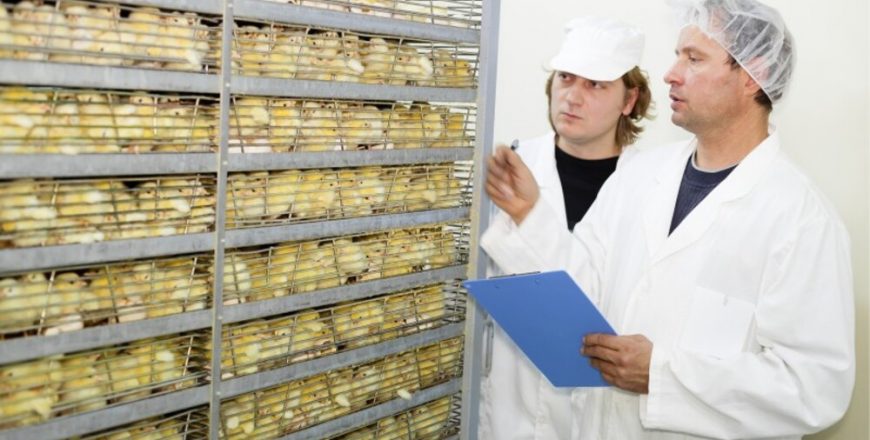
You’ll help farm birds for their eggs or meat on a poultry worker apprenticeship course.
The main duty of a poultry worker is to raise the animals with the utmost care and consideration for their needs at all stages of their lives.
You will discover that working as a poultry worker is a hands-on profession that mixes technology and physical labour. Working as a poultry worker requires compassion, self-motivation, and the ability to work alone and as part of a team. You will be held responsible for your work, but you will be carefully watched.
Because animal welfare is a significant priority on farms, the key to being a good poultry worker is understanding your limits and knowing when to seek help.
You will be responsible for supporting the bird development process, keeping bird housing in good condition, and planning and monitoring the livestock production environment. This will include ensuring they are cared for following health and welfare requirements.
What you’ll learn
On a poultry worker apprenticeship course, you’ll learn to:
- Maintain a safe working environment and safely perform work.
- Implement site procedures and report incidents/hazardous circumstances.
- Implement and monitor biosecurity laws and policies in the workplace. Take corrective action as required.
- Implement site and personal hygiene procedures, such as proper access and departure restrictions. Maintain a clean environment following the agreed-upon requirements for the facility.
- Prepare facilities for the arrival and departure of birds. Transport and move birds in a safe, effective, and compassionate way. Using and utilising appropriate manual handling techniques
- Monitor and maintain the health of the bird.
- Determine the status of the bird/egg and takes necessary action.
- Maintain and operate ventilation, feeding equipment, drinking equipment, incubators, and nest boxes safely and effectively (suitable for the age/breed/bird requirement).
- Use the appropriate technology and techniques for the job. (Some examples include computerised shed environmental management equipment, hatchery processing equipment, environmental testing equipment, and egg grading and packaging equipment.)
- Perform required checks on time and keep/update/maintain relevant records.
- Adhere to and implement welfare practice standards, including the five freedoms (as described in knowledge)
- Implement and enforce business/industry and regulatory obligations, including industry assurance standards relevant to the operation
- Use problem-solving abilities while carrying out duties and tasks.
Entry requirements
You’ll usually need:
- GCSEs including English and maths or equivalent qualifications or relevant experience for an intermediate apprenticeship
- Apprentices without level 2 English and maths will need to achieve this before taking the end point assessment.
Assessment methods
The End Point Assessment comprises three components.
- Multiple choice test
- Observational practical assessment
- Professional discussion
Duration, level, subjects and potential salary upon completion
- Duration: 12 months
-
Level: 2 – Intermediate Apprenticeship
- Relevant school subjects: Food technology
- Potential salary upon completion: £18,000 per annum
Apprenticeship standard
More information about the Level 2 Poultry Worker Apprenticeship standard can be found here.
Apprenticeship end point assessment
For more information about the End Point Assessment Process, please read the Institute of Apprenticeships’ information page.
